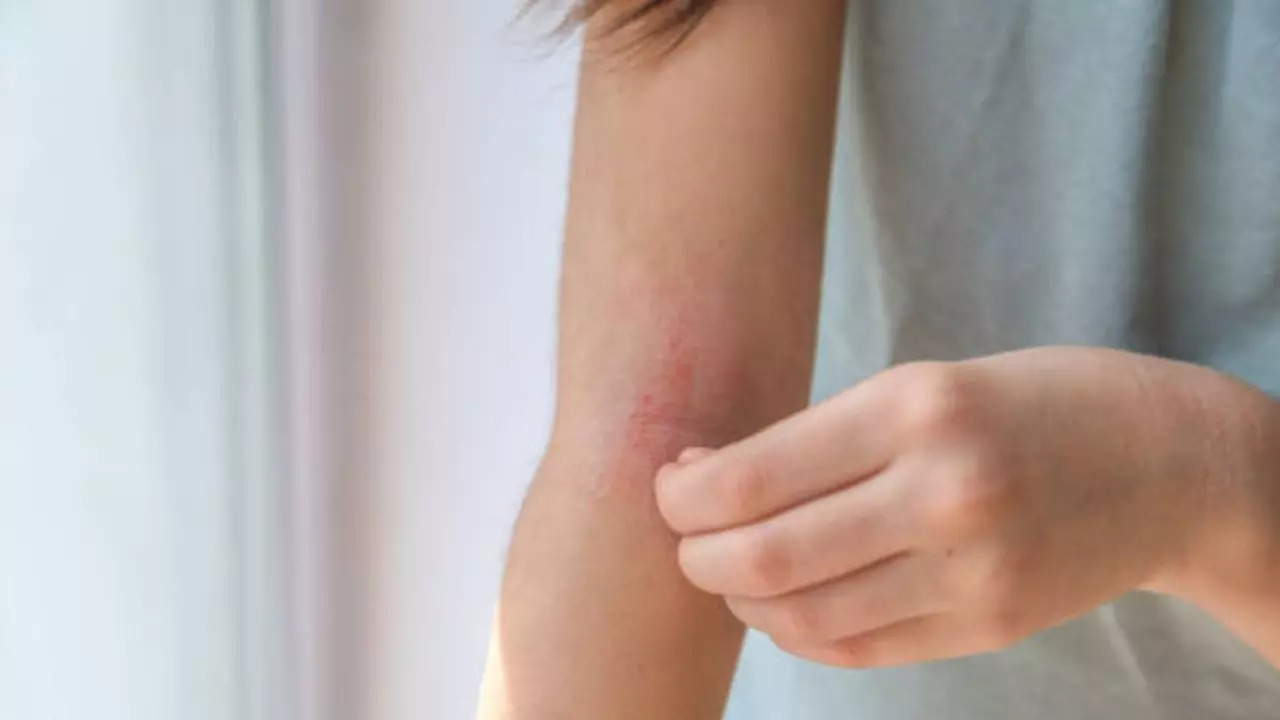-
news
-
Health
Dietary changes alone may not reduce eczema in children: Study
A study presented at the American College of Allergy, Asthma, and Immunology suggests that elimination diets may not significantly improve eczema symptoms in children. Although many parents identified food triggers, only a minority saw improvement after dietary changes.

Dietary changes alone may not reduce children’s eczema: study (Image credit: iStock)
A recent study shows that removing specific foods from a child’s diet may not alleviate the problem. symptoms of eczema, ItchingOr atopic dermatitislinked to an overactive immune response and increased risk food allergiesLeading some parents to adopt elimination diets to manage their children’s itchy, rashy skin.
The study presented at the annual meeting of the American College of Allergy, Asthma and Immunology in Boston found that the elimination diet resulted in only modest improvement in the eczema lesions of about a third of the participants. “Elimination diets are not recommended for the treatment of atopic dermatitis according to guidelines from major allergy organizations,” said lead researcher Dr. Nadia McCoudzi, a pediatrician at Jackson Health System in Miami.
The study surveyed nearly 300 parents in South Florida regarding their children’s diet and skin health. Of those surveyed, about 42 percent believed that certain foods aggravated their child’s eczema. The most commonly cited triggers were milk (32 percent), nuts and seeds (16 percent), and eggs (11 percent). Nearly a quarter of parents (23 percent) who identified a potential food trigger removed it from their child’s diet completely.
However, the results were disappointing: 38 percent of these parents saw no improvement in their child’s eczema, and 35 percent reported only slight improvement. Only 9 percent claimed that eliminating the food cured their child’s eczema symptoms. Remarkably, 79 percent of parents who reintroduced the suspect foods did not see a recurrence of eczema.
The researchers concluded that despite the elimination diet, only a third of respondents experienced modest improvement in eczema lesions. They stressed the need for larger studies to confirm these findings and explore the relationship between diet and atopic dermatitis. Because these findings were presented at a medical meeting, they should be considered preliminary until published in a peer-reviewed journal.
Symptoms of eczema to pay attention to
Dry skin: Skin may appear very dry, rough and flaky.
Itching: Intense itching is often the first symptom and can be severe, causing scratching and irritation.
Reddish or grayish-brown spots: These spots can occur on various parts of the body including the face, neck, elbows and knees, hands and feet.
Inflamed skin: Areas of skin may become swollen and inflamed, especially after scratching.
Drainage or crusting: In some cases, affected areas may ooze fluid, crust over, or develop small blisters.
Thick skin: With constant scratching or irritation, the skin can become thick and leathery in texture, a condition known as lichenification.
Change in skin color: Affected areas may become darker or lighter in color over time.
Get the latest news live on Times Now with breaking news and top headlines from around the world.
eczema


